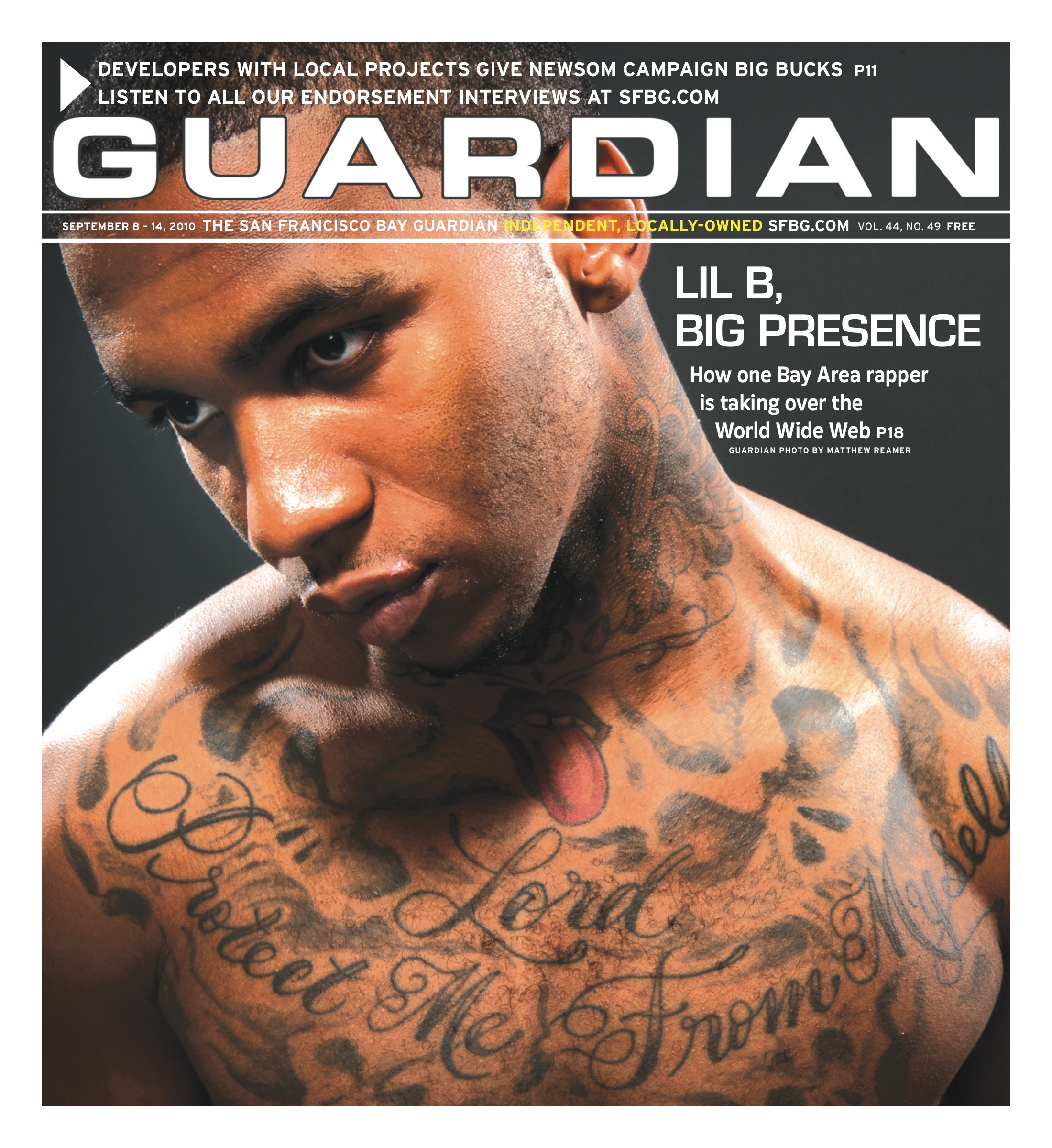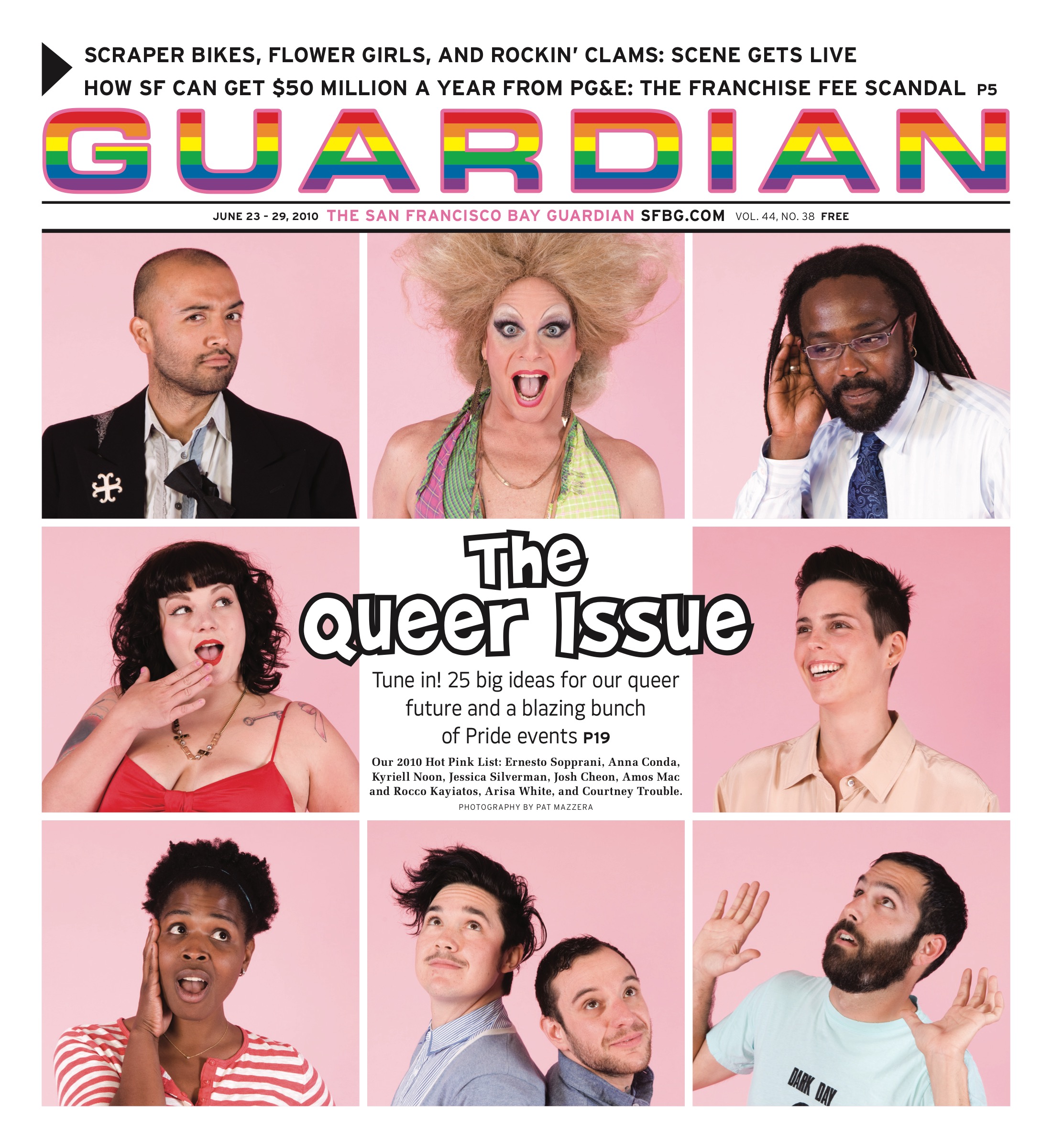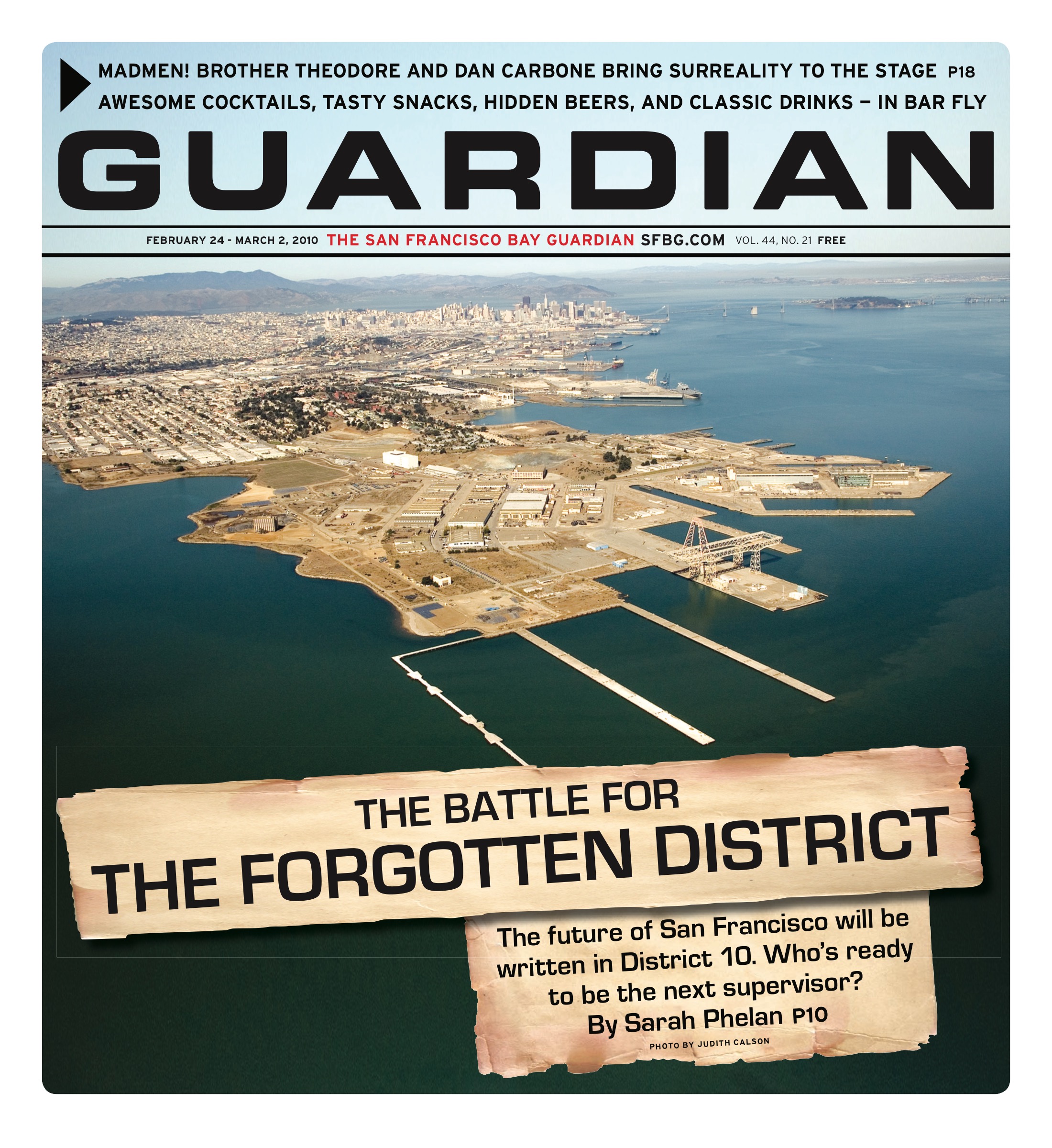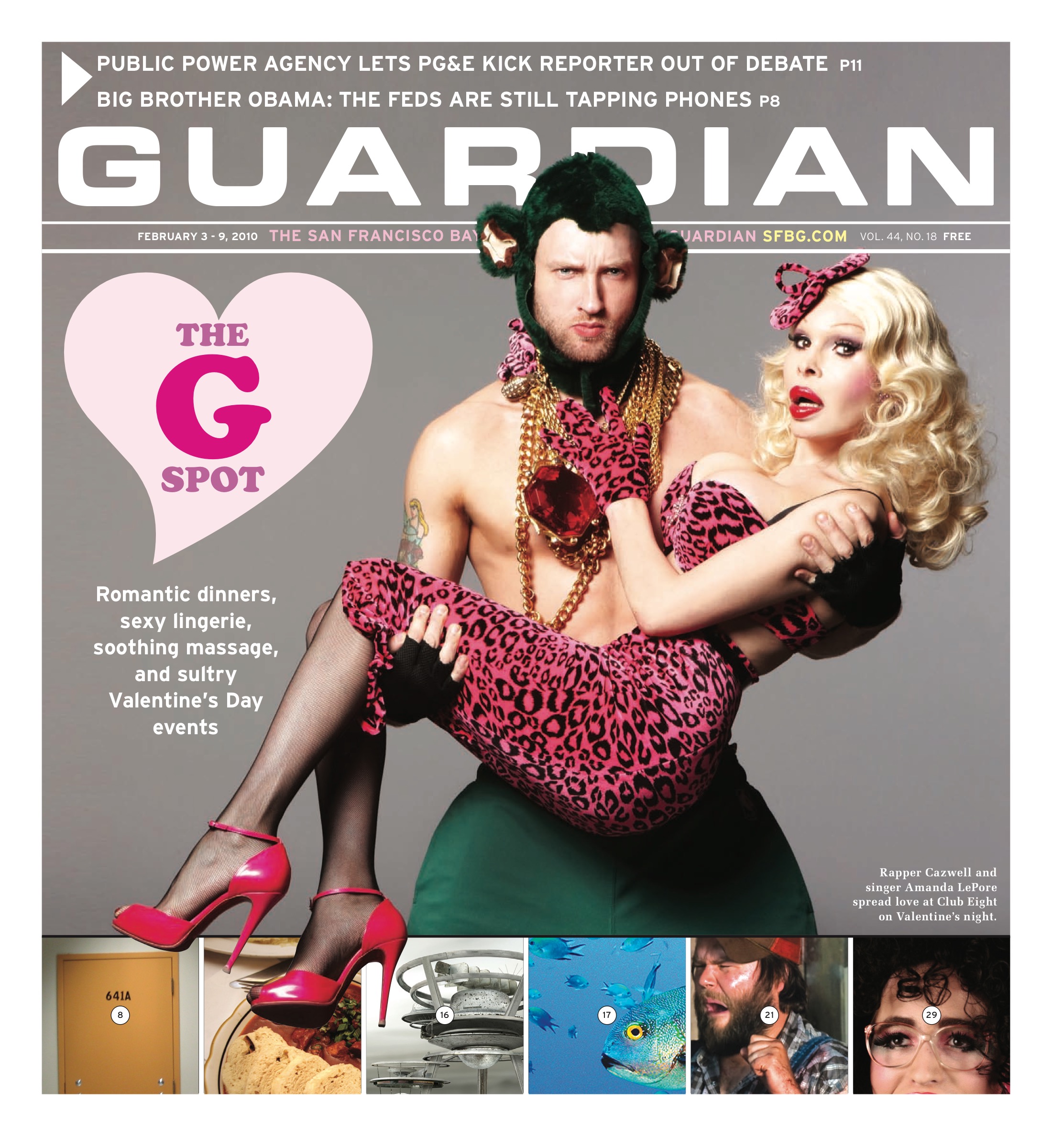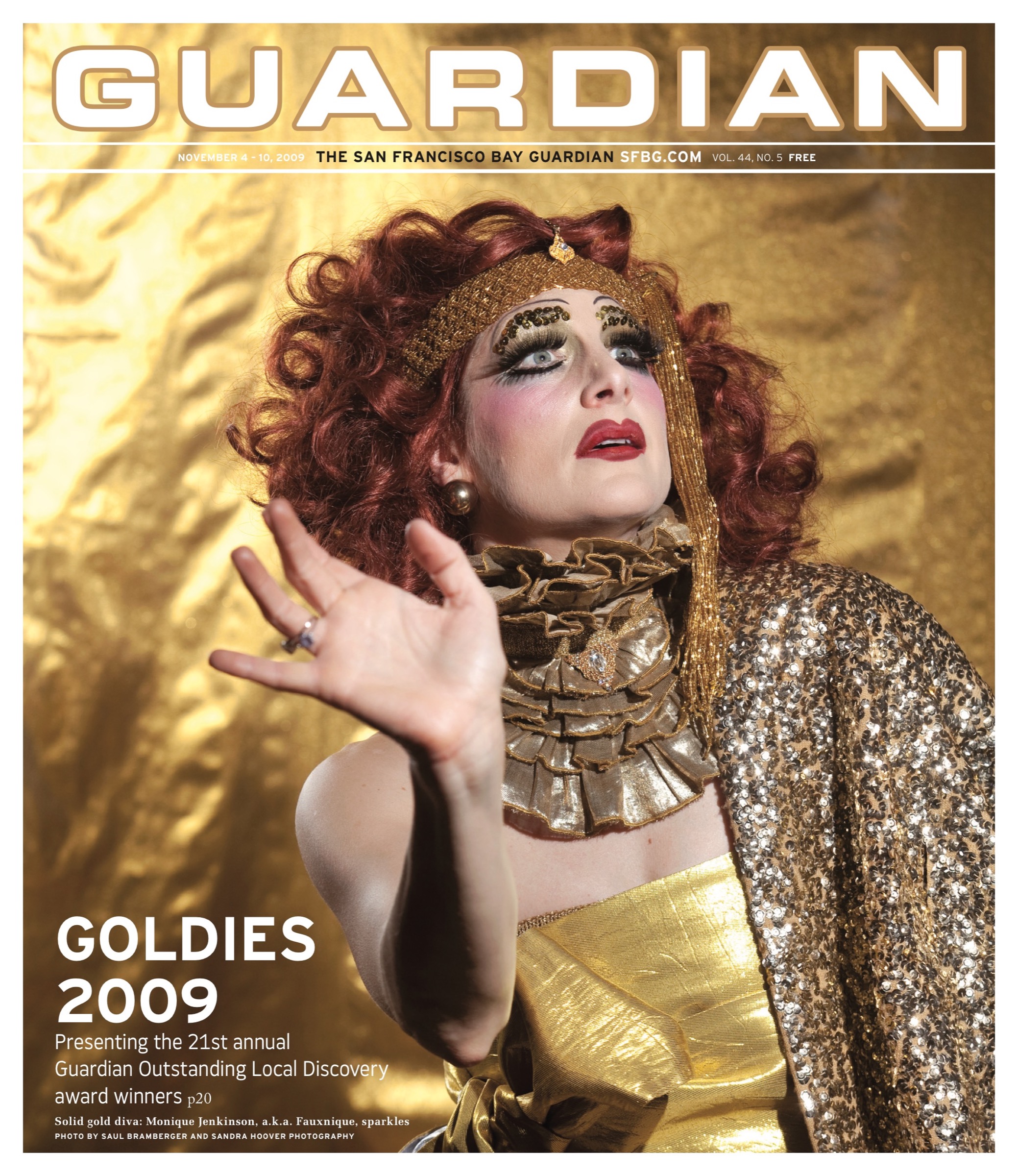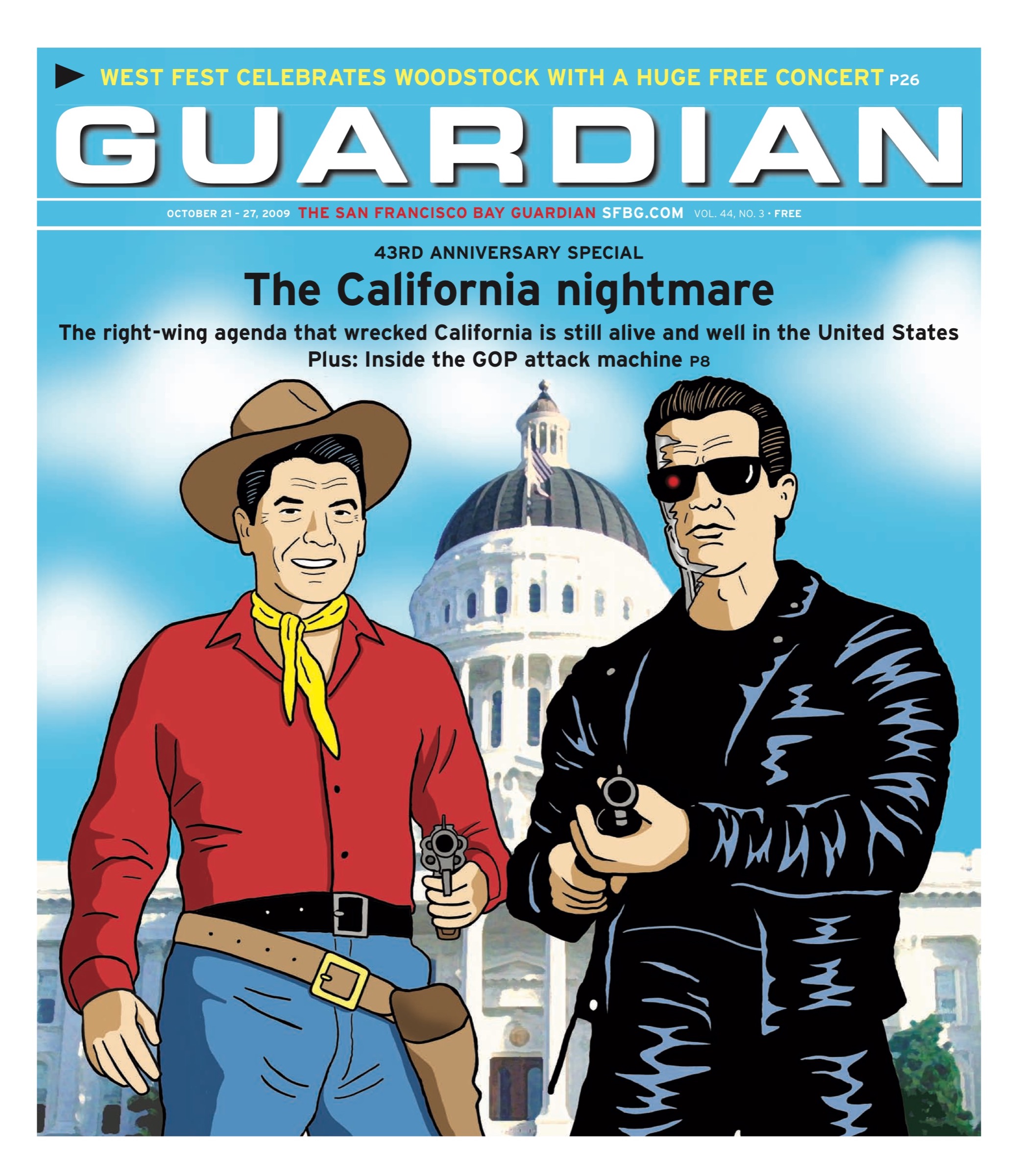arts@sfbg.com
STAGE During a lively discussion of aesthetics, Lord Henry Wotton (John Fisher) and painter Basil Hallward (Jef Valentine) pry open a Pandora’s box of idolatry, narcissism, and moral quicksand called The Picture of Dorian Gray. Oscar Wilde, author of the novel, is of course the aesthete par excellence. But this genuinely creepy, darkly sexy, and thought-filled Gothic — now imaginatively brought to life on the stage by Theatre Rhinoceros artistic director and playwright-director Fisher (Medea, the Musical) — reminds us that Wilde was a man prone to paradoxes that were anything but facile.
If Wilde was uncompromising in his aestheticism (not to mention his admirable embrace of social frippery), these qualities came charged with a devastating, subversive wit and an unquiet, compassionate intellect prone to probing questions about so-called human nature, as well as the nature of the social world he had inherited (still familiar in its essentials today, a century later). In a way, Dorian Gray is the dark dramatic counterpart to Wilde’s “The Soul of Man under Socialism,” his still must-read essay on the cultivation of the individual as the basis of a just society and vice-versa.
But to the play. The preternaturally beautiful young man of the title (essayed here with the perfect balance of innocence and ruthlessness by a captivating Aaron Martinsen) is a privileged orphan who comes under the wing of a painter, but the hierarchy is immediately inverted: it is Basil who comes under the power of the initially oblivious Dorian. So possessed (as opposed to merely “inspired”) is Basil by his subject that he paints a portrait well beyond his usual powers and jealously guards it from public eyes. Reluctantly introducing the boy to his friend, the consummate aristo-hedonist Lord Henry (played with a slightly brooding manner and delicate raunch by Fisher), Basil loses Dorian to the pull of Watton’s morally unbounded worldview. Soon Dorian utters a fateful wish: his soul in exchange for the eternal youth represented by his portrait. Wish granted, the portrait bears all the scars of aging and debauchery and evil in his stead, as he spirals into a moral abyss that consumes more than one life along the way.
In the principle roles, Fisher, Valentine, and Martinsen are worthy vehicles for the play’s elevated language and heightened realism. Valentine’s smart and engaging performance as Basil carries real weight and is a fresh surprise coming from a talented actor seen more often in drag than “straight” clothes (though even here, his natty, late-19th-century threads and pointed mustachio suggest a refugee from a barber shop quartet). The principals get strong support from Maryssa Wanlass and Celia Maurice in a variety of parts, and inconsistent help from the hard-working but less versatile Stephen Chun and Adam Simpson.
Fisher’s staging is apt and frequently inspired in a manner that suits the idea-driven material. The Eureka’s ample stage remains empty but for the odd chair, with an occasional sheen of light and shadow (from lighting designer Anthony Powers) suggesting the outdoors. This stark approach emphasizes the actors, whose smart period costumes, courtesy of the able Christine U’Ren, do most of the visual work in setting a period mood. The play’s characters are serenely unmoored in a way that compliments the story’s moral drift, swift conflation of time, and ethereally — and sexually — in-between quality.
Balletic, operatic touches (including light but compelling movement from choreographer Lia Metz, amid occasional bursts of Wagner and other Romantics) enhance the more lurid moments lovingly, while filling out the action with the most economical yet graceful of gestures. When modest theater actress Sybil Vane (a sharp and appealing Wanlass), victim of Dorian’s caprice, jumps to her death, the moment shifts from sturm und drang to a tragic tranquility. The actress throws up her hands and recedes slowly backward upstage, already of another world, as the back wall stops her cold, her vertical pose perfectly in line with the audience’s sight line as it follows her down to the ground.
The production has minor flaws. Chun and Simpson speak into offstage microphones to substitute for onstage servants and other minor parts, and the disparities within sound quality and volume, along with the tossed-off line readings, prove jarring. But any missteps are small ones. Moreover, despite a nearly three-hour run time, the play’s length isn’t a problem. Every word of Wilde’s put to use here — and Fisher has elegantly managed to include a lot of them — feels relevant, enticing, and necessary. If anything, the subtlety and thematic density of the speech demands a certain period of adjustment, and the two sets amount to full immersion in the heart of Dorian Gray. *
THE PICTURE OF DORIAN GRAY
Wed.–Sat, 8 p.m.; Sun, 3 p.m.;
(through Sept. 19); $15–$20
Eureka Theatre
215 Jackson, SF
(800) 838-3006

